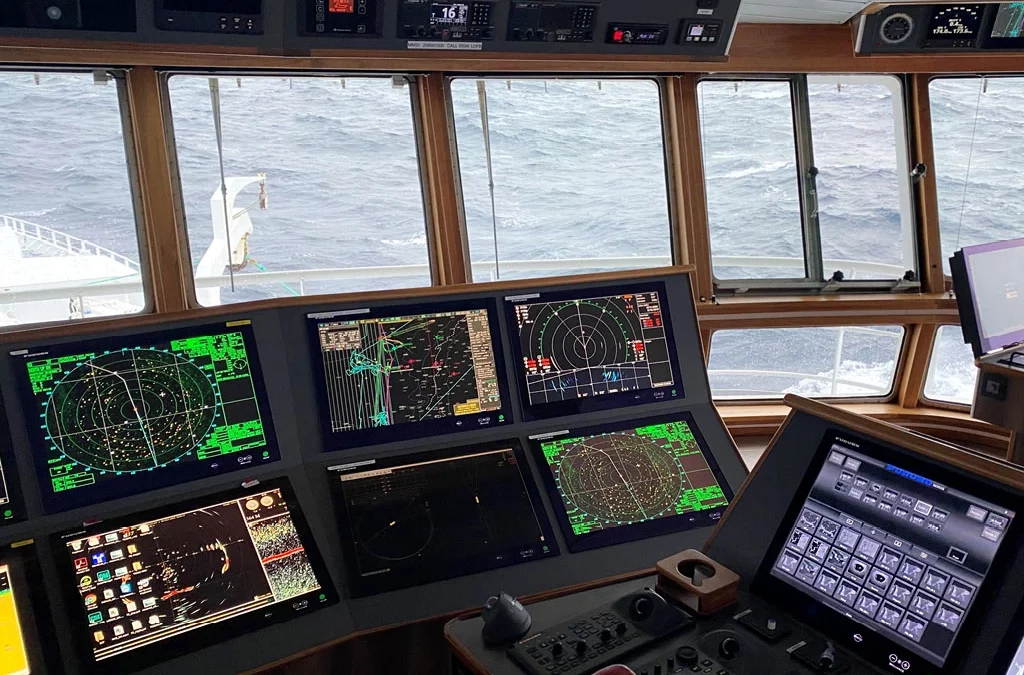
by Barani Chettiar | Mar 27, 2024 | Uncategorized
In the vast expanse of the open sea, where precision is paramount, the right GPS navigation system can be the key to a successful and efficient fishing operation. In this guide, we explore the importance of GPS for fishing, factors to consider when selecting a system, different types available, and connectivity options, helping commercial fishermen make an informed decision for their unique needs.
Importance of GPS for Fishing Operations
For commercial fishing operations, the significance of a reliable GPS navigation system cannot be overstated. From identifying productive fishing grounds to navigating safely back to port, GPS is the guiding star for fishermen. It provides accurate position information, tracks movement, and helps in creating efficient routes, contributing to increased productivity and safety on the water.
In the world of marine navigation equipment, the right GPS system becomes the backbone of fishing operations, offering real-time data that aids in decision-making and ensures a smooth and successful fishing expedition.
Factors to Consider
Selecting the right GPS system for commercial fishing involves considering several crucial factors. Let’s delve into the key considerations that can influence your decision:
Water Resistance and Durability
Commercial fishing involves exposure to harsh marine conditions. Opt for a GPS system that is not only water-resistant but also built to withstand the rigors of the sea. Look for devices with robust construction and seals that keep out water, ensuring the system’s longevity in challenging environments.
Accuracy and Signal Strength
Precision is vital in marine navigation, especially for commercial fishing where the difference of a few feet can significantly impact the catch. Choose a GPS system with high accuracy and strong signal strength, even in adverse weather conditions or areas with potential signal interference.
Mapping and Chartplotter Capabilities
Efficient navigation often relies on detailed maps and charts. A GPS system with comprehensive mapping and chartplotter capabilities provides valuable insights into underwater topography, potential hazards, and fish migration patterns. Ensure that the chosen system is compatible with the type of charts relevant to your fishing grounds.
Types of GPS Systems
When exploring GPS options, you’ll encounter two main types: handheld and fixed-mount units.
Handheld vs Fixed-Mount Units
Handheld Units:
Portable and versatile, handheld GPS units are ideal for smaller vessels or for fishermen who prefer mobility. They often come with features like waypoint marking and tracking, making them suitable for basic navigation needs.
Fixed-Mount Units:
Mounted on the boat, fixed-mount GPS systems are larger and offer more advanced features. They often integrate with other marine electronics, providing a comprehensive navigational setup. Consider the size of your vessel and your specific navigation requirements when choosing between handheld and fixed-mount units.
Connectivity Options
Modern GPS systems offer various connectivity options that enhance functionality and convenience.
Wi-Fi, Bluetooth, and NMEA Compatibility
Wi-Fi: Enables wireless data transfer and updates, keeping your GPS system current with the latest charts and software.
Bluetooth:
Facilitates connectivity with other devices, such as smartphones or tablets, enhancing accessibility and control.
NMEA Compatibility:
Ensures seamless integration with other marine electronics, allowing for a connected and synchronized navigational setup.
Battery Life and Power Source
Consider the battery life of the GPS system, especially if you embark on extended fishing trips.
Longevity During Extended Fishing Trips
A reliable GPS system should have sufficient battery life to last throughout your fishing expedition. For longer trips, consider additional power sources, such as external batteries or a connection to the vessel’s power supply.
Cost Comparison
While budget is a consideration, it’s essential to balance cost with the features and reliability needed for commercial fishing operations.
Budget-Friendly vs Premium Options
Budget-Friendly Options:
Basic handheld GPS units and entry-level fixed-mount systems may be suitable for smaller vessels with simpler navigation needs.
Premium Options:
Advanced fixed-mount GPS systems with extensive features, high accuracy, and durability are investments worth considering for larger commercial fishing operations where precision and reliability are critical.
Choosing the Right GPS is Essential
In the world of marine navigation equipment, the right GPS system is a linchpin for the success of commercial fishing operations. From water resistance and accuracy to connectivity options and cost considerations, each factor plays a role in determining the most suitable GPS for your needs. Whether navigating coastal waters or venturing into the deep sea, a well-chosen GPS system ensures that you can focus on the catch, confident that your navigational companion is guiding you with precision and reliability.
When exploring options, collaborate with a reputable marine navigation equipment supplier to ensure that you not only get a quality GPS system but also receive expert advice tailored to the unique demands of commercial fishing. Ultimately, choosing the right GPS is not just a decision; it’s a strategic investment in the efficiency, safety, and success of your commercial fishing endeavors.
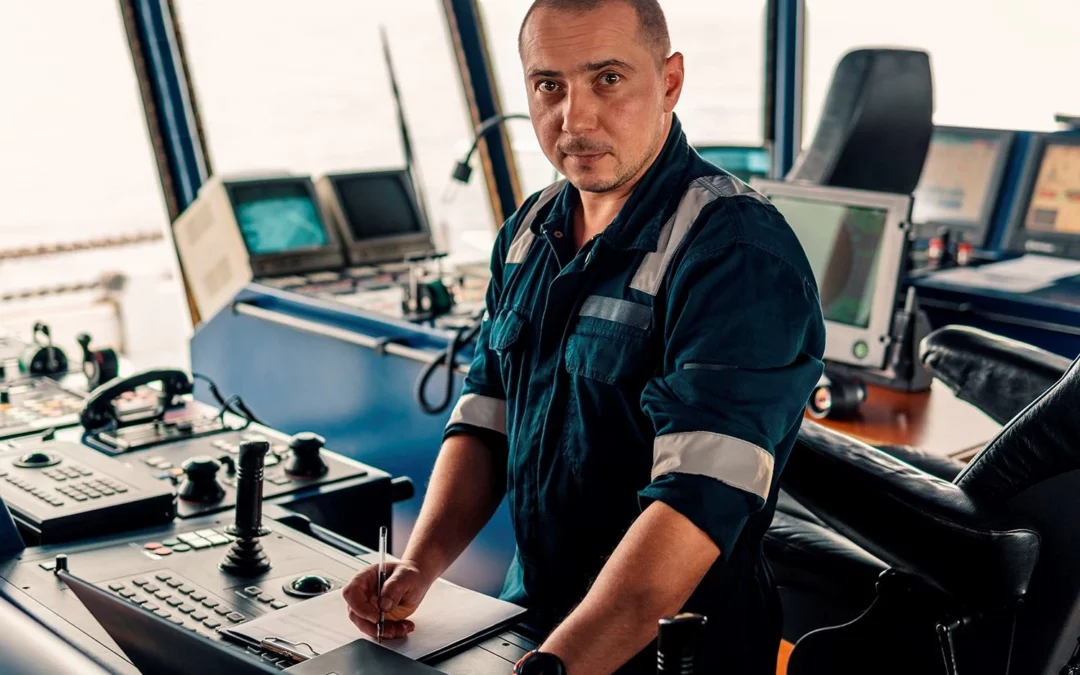
by Barani Chettiar | Mar 26, 2024 | Uncategorized
Best Practices for Marine Radio Maintenance and Troubleshooting
Navigating the open waters requires more than just skilled seamanship; it demands reliable communication. A crucial component of maritime communication is the VHF marine radio. In this blog post, we delve into the importance of maintaining this essential equipment, exploring best practices, common issues, and the significance of proactive care for maritime safety.
Importance of Marine Radio Maintenance
A reliable VHF marine radio is the lifeline for sailors, connecting them with other vessels, shore stations, and emergency services. Regular maintenance ensures that this critical communication tool operates at peak efficiency, reducing the risk of communication breakdowns during crucial moments at sea.
Routine checks and preventive measures not only extend the lifespan of the equipment but also contribute to the overall safety of maritime operations. Neglecting the maintenance of a VHF marine radio can lead to compromised communication, jeopardizing navigation, emergency response, and coordination with other vessels.
Inspect Antenna, Connections, and Wiring
To maintain optimal performance, start with a thorough inspection of the antenna, connections, and wiring. Corrosion, wear, or loose connections can significantly affect signal strength and clarity. Regularly check the antenna for any physical damage and ensure that it is securely mounted. Examine the connections for signs of corrosion, and replace any damaged components promptly.
Wiring, often exposed to harsh marine conditions, should be inspected for wear and tear. Look out for frayed or damaged wires and replace them to prevent signal disruptions. A proactive approach to these checks can prevent issues before they escalate, ensuring that your VHF marine radio remains a reliable communication tool.
Monitor Charge Levels, Replace When Necessary
A VHF marine radio is only as good as its power source. Regularly monitor the battery charge levels and replace batteries as needed. Ensure that spare batteries are on board, especially during extended journeys. Keeping a well-charged radio is crucial for emergency situations and maintaining constant communication with other vessels.
For sailors in Singapore, where maritime activities are bustling, having a reliable VHF marine radio is not just a convenience; it’s a necessity. Consider exploring options for VHF marine radio for sale to ensure that you have the latest and most efficient equipment on board.
Install Latest Firmware for Optimal Performance
Just like any other technology, VHF marine radios benefit from software updates. Manufacturers often release firmware updates to improve performance, address bugs, and enhance features. Regularly check for and install the latest firmware to ensure that your radio operates at its best. This practice is especially important in a rapidly evolving maritime landscape where technology plays a pivotal role in communication and navigation.
Common Issues and Solutions
Despite proactive maintenance, issues may still arise. Common problems include poor reception, distorted audio, or a complete loss of signal. In such cases, check the basics first – antenna connections, battery levels, and wiring. If issues persist, consult the user manual for troubleshooting tips or contact the manufacturer for guidance.
Having awareness of common problems and solutions equips sailors with the knowledge to address minor issues promptly, preventing them from escalating into major communication breakdowns.
Protocol During Radio Failures
In the unfortunate event of a radio failure, it’s crucial to follow established protocols. Use alternative communication methods if available, such as flares, flags, or visual signals. Attempt to repair the radio using onboard tools and spare parts. If the issue persists, notify nearby vessels of the communication failure using other means and seek assistance.
Importance of Proactive Maintenance for Safety
In maritime operations, safety is paramount. Proactive maintenance of VHF marine radios contributes to a culture of safety, ensuring that communication remains robust even in challenging conditions. Regular checks and preventive measures empower sailors to navigate with confidence, knowing that their communication tools are reliable and ready for any situation.
In conclusion, the reliability of a VHF marine radio is not a luxury but a necessity for maritime safety. By adhering to best practices in maintenance, sailors can navigate the seas with the assurance that their communication lifeline is strong and dependable. Whether in Singapore or on the high seas, a well-maintained VHF marine radio is an indispensable companion for every sailor, fostering a safer and more connected maritime community.
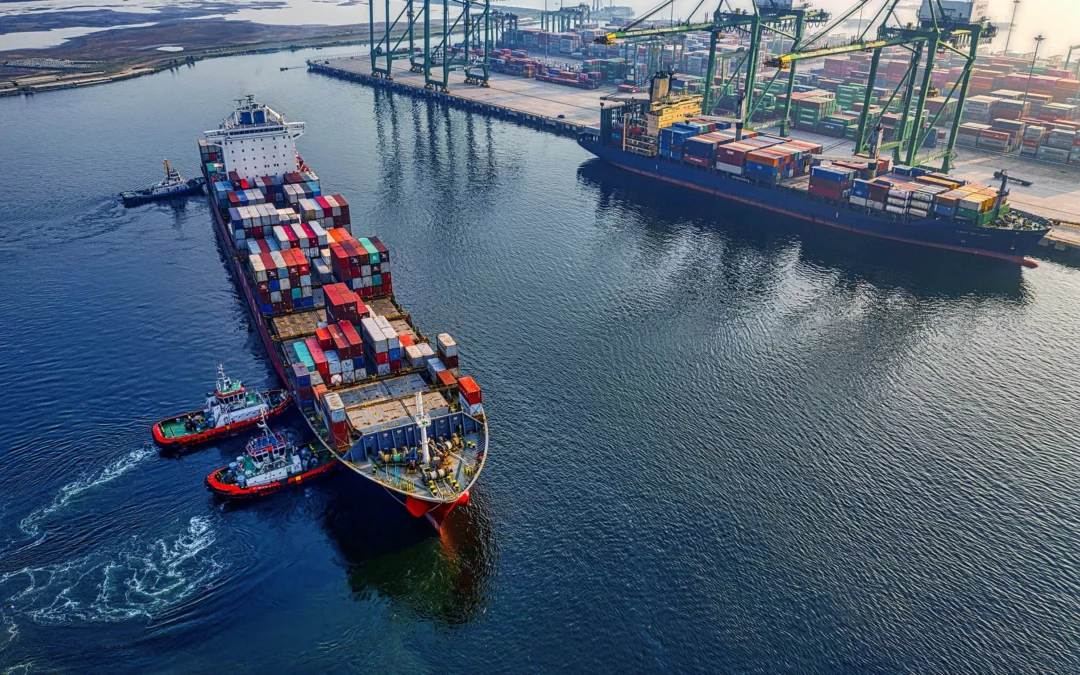
by Barani Chettiar | Mar 25, 2024 | Uncategorized
A Guide to Marine Radio Licensing and Regulations for Commercial Use
Introduction: Importance of Marine Radio Licensing
In the vast expanse of maritime activities, communication is not just a convenience—it’s a critical necessity. For commercial vessels navigating the open seas, Marine Radios play a pivotal role in ensuring safety, coordination, and emergency response. This guide sheds light on the significance of marine radio licensing and the regulatory landscape that governs commercial use.
Licensing Requirements: Types and Application Process
Before delving into the waves, it’s essential to understand the licensing requirements for operating marine radios on commercial vessels. The process varies from country to country, but generally involves obtaining a license from the relevant maritime authority. In Singapore, for instance, the Info-communications Media Development Authority (IMDA) oversees the licensing of marine radios.
There are different types of licenses based on the nature of operations. The two primary categories include the Ship Radio Station License for the vessel and the Radio Operator’s Certificate for the personnel responsible for communication. The application process typically involves submitting documentation, including vessel details, radio equipment specifications, and the qualifications of the radio operators.
Radio Regulations: Compliance with International Rules
Maritime activities are not bound by national borders alone; they adhere to international rules and regulations. Commercial vessels must comply with the International Telecommunication Union’s (ITU) Radio Regulations, which set the standard for maritime communication. These regulations ensure a harmonized frequency allocation, preventing interference and promoting efficient communication at sea.
Staying abreast of these international rules is crucial for commercial operators to avoid penalties and disruptions in communication. When considering marine radios for sale, it’s prudent to choose equipment that aligns with these global standards, ensuring seamless communication across different regions.
Equipment Standards: Requirements for Commercial Vessels
Not all marine radios are created equal, especially when it comes to commercial use. Commercial vessels are required to equip themselves with radios that meet specific standards to ensure reliability and effectiveness. The choice of radio must align with the vessel’s size, purpose, and the areas it operates in.
Look for VHF marine radios for sale that comply with the Global Maritime Distress and Safety System (GMDSS) standards. These radios are designed to facilitate communication during distress situations, offering features such as Digital Selective Calling (DSC) for automated distress signals. Investing in quality equipment not only enhances safety but also ensures compliance with regulatory standards.
Operating Procedures: Proper Communication Protocols
Effective communication on the open seas requires adherence to proper operating procedures. The personnel responsible for radio communication must be well-versed in maritime communication protocols. This includes understanding channel usage, maintaining radio discipline, and utilizing proper call signs and procedures.
Operators should be aware of the specific channels designated for different purposes, such as distress calls, safety communications, and routine operational messages. Training and regular drills help ensure that radio operators are prepared to handle various scenarios, contributing to the overall safety of commercial operations.
Safety Measures: Emergency Communications and Distress Signals
In the unpredictable maritime environment, emergencies can arise without warning. Proper emergency communication protocols are essential for a swift and coordinated response. Marine radios equipped with DSC capability allow for the automatic transmission of distress signals, streamlining the process of seeking assistance.
Familiarize yourself with the proper use of distress signals and emergency frequencies. Regular equipment checks and maintenance are equally crucial to ensure that the radio is in optimal working condition when needed the most. Investing in reliable equipment and maintaining a proactive approach to safety contributes to the overall resilience of commercial vessels.
Ensuring Compliance for Safe Operations
In the dynamic world of commercial maritime activities, compliance with marine radio licensing and regulations is not just a legal requirement—it’s a commitment to safety. From choosing the right VHF marine radio for sale to training personnel in proper communication protocols, every step plays a crucial role in ensuring the smooth and secure operation of commercial vessels.
By understanding and adhering to licensing requirements, international regulations, equipment standards, operating procedures, and safety measures, commercial operators can navigate the seas with confidence. Prioritize safety, invest in quality equipment, and stay informed about evolving regulations to uphold the highest standards of maritime communication. In the vast blue expanse, let responsible radio communication be the guiding beacon for safe and successful commercial operations.
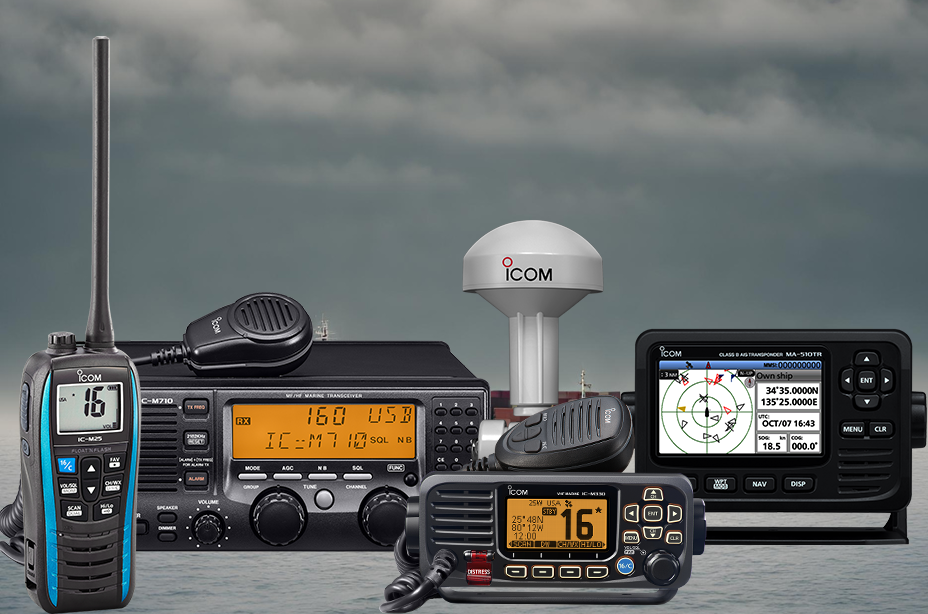
by Barani Chettiar | Mar 23, 2024 | Uncategorized
Effective communication in the boundless ocean is not merely a luxury, but a crucial necessity for survival. The maritime industry relies heavily on robust and reliable communication equipment to ensure the safety and efficiency of operations. Among the array of tools available, marine radios play a pivotal role in facilitating seamless communication. In this blog post, we will delve into the diverse world of marine radios, exploring their types and applications in commercial settings.
Importance of Marine Radios in Commercial Settings
Before we dive into the specifics, let’s emphasize the crucial role marine radios play in the commercial maritime sector. Effective communication is the backbone of safe navigation, efficient operations, and response to emergencies. Whether it’s coordinating the movements of vessels in a busy port or calling for assistance during adverse weather conditions, the right marine radio is indispensable for maritime professionals.
VHF Marine Radios: Standard Communication Equipment
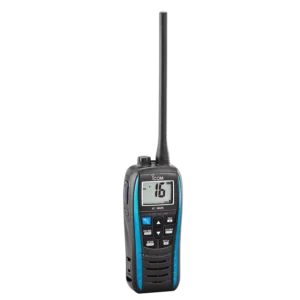
The VHF (Very High Frequency) Marine Radio stands as the standard communication equipment for most maritime applications. Operating in the VHF frequency range, these radios are ideal for short to medium-range communication. They are widely used for ship-to-ship, ship-to-shore, and port operations. VHF radios provide clear and reliable voice communication, making them an essential tool for real-time coordination in commercial maritime activities.
SSB Radios: Long-Range Communication Capabilities
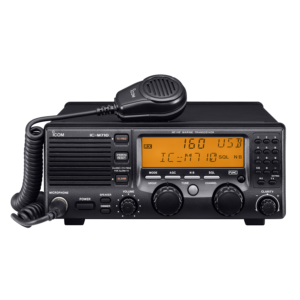
For commercial vessels that operate in long-range or remote areas, Single Sideband (SSB) Radios come into play. These radios utilize high-frequency bands, enabling communication over much greater distances compared to VHF radios. SSB radios are instrumental for vessels engaged in long-haul shipping, offshore exploration, and fishing in deep-sea waters. Their long-range capabilities make them a valuable asset for maintaining contact when traditional VHF communication is impractical.
AIS Transponders: Automatic Identification System for Vessel Tracking
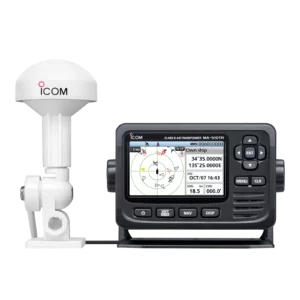
In the realm of modern maritime technology, AIS (Automatic Identification System) Transponders have revolutionized vessel tracking and collision avoidance. AIS transponders broadcast real-time information about a vessel’s identity, position, speed, and course. This technology enhances situational awareness, allowing vessels to navigate safely in congested waterways. Visit www.tecomart.co to explore a range of AIS transponders that cater to commercial applications, ensuring precise vessel tracking for improved safety and operational efficiency.
Satellite Phones: Reliable Communication in Remote Areas
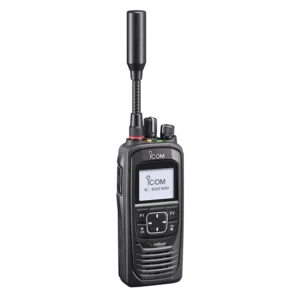
When venturing into remote or offshore areas where traditional communication infrastructure is absent, satellite phones become indispensable. These phones use satellite networks to provide reliable voice and data communication, ensuring that vessels stay connected even in the most isolated regions.
DSC Radios: Digital Selective Calling for Distress Signal
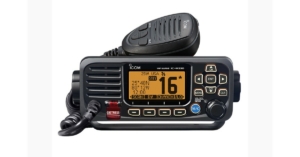
In emergency situations, time is of the essence, and DSC (Digital Selective Calling) Radios play a critical role. These radios allow vessels to send automated distress signals with precise location information, significantly reducing response times in rescue operations. DSC radios enhance safety at sea by ensuring quick and accurate communication during critical moments.
Conclusion: Choosing the Right Marine Radio for Your Needs
In the dynamic world of commercial maritime operations, choosing the right radio communication equipment is paramount. Consider the specific needs of your vessel and the environments in which you operate. Whether it’s the standard VHF radio, long-range SSB radio kit, AIS transponder for vessel tracking, reliable satellite phones, or emergency-ready DSC radios, www.tecomart.co offers a comprehensive selection to meet your diverse requirements. Invest in the right marine radio technology to navigate the seas safely and efficiently, ensuring seamless communication throughout your commercial endeavors.
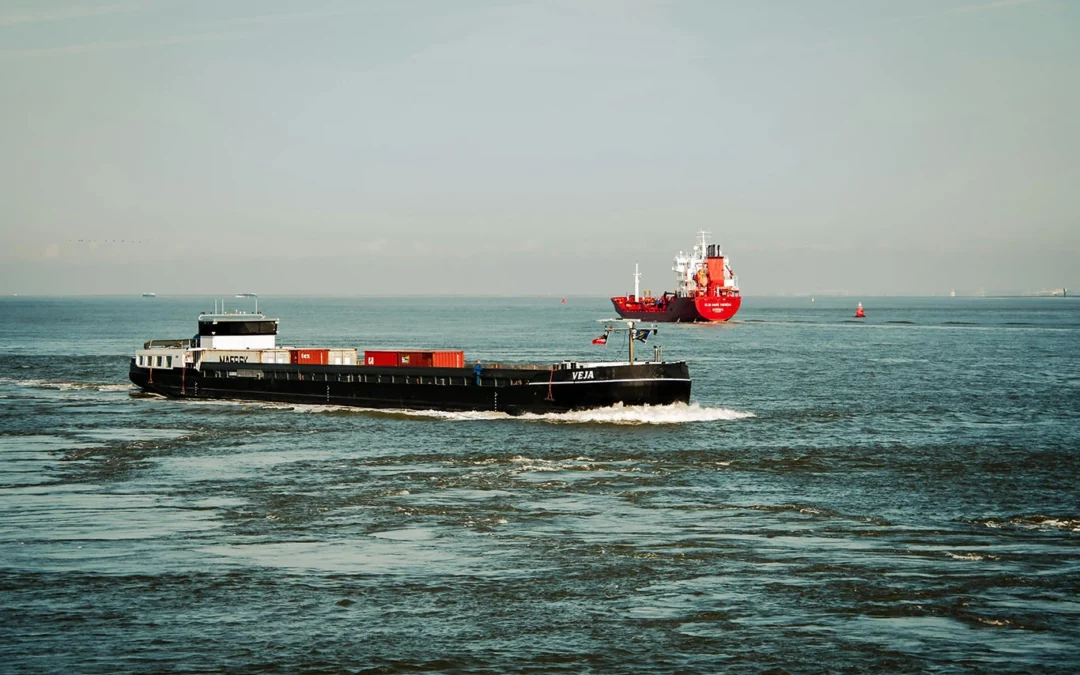
by Barani Chettiar | Mar 22, 2024 | Uncategorized
Importance of Marine Radio Networking in Fleets
In the dynamic realm of commercial fleets, effective communication is the linchpin that ensures smooth operations, safety, and efficiency. Marine radio networking, facilitated by cutting-edge marine navigation equipment, emerges as a transformative solution for enhancing communication among vessels. This blog post delves into the myriad benefits of marine radio networking for commercial fleets.
Enhanced Communication: Real-time Updates and Coordination
Seamless Fleet-Wide Communication
Marine radio networking enables real-time communication between vessels within a fleet. Crew members can share critical updates, navigational information, and coordinate maneuvers effortlessly, fostering a synchronized and well-informed fleet.
Improved Situational Awareness
With the ability to broadcast and receive real-time updates, vessels can enhance their situational awareness. This is particularly crucial in busy waterways or adverse weather conditions, where immediate communication can prevent potential hazards.
Safety Improvements: Quick Response to Emergencies
Emergency Alert Capabilities
Marine radio networking equips vessels with the ability to transmit emergency alerts swiftly. In case of distress, a quick and coordinated response can be initiated, ensuring the safety of the crew and minimizing potential damage to vessels.
Man Overboard (MOB) Systems
Integrated MOB systems in marine radio networking allow for immediate notification and location tracking if a crew member falls overboard. This prompt response is critical for successful rescue operations.
Efficiency Boost: Streamlined Operations and Route Optimization
Route Planning and Optimization
Marine radio networking supports efficient route planning and optimization. Vessels can share information about optimal routes, avoiding congestion and reducing travel time. This not only saves fuel but also enhances overall fleet efficiency.
Streamlined Cargo Operations
Efficient communication within a fleet streamlines cargo handling operations. Coordination on loading and unloading procedures ensures a smooth and time-effective process, minimizing downtime and maximizing productivity.
Cost Savings: Reduced Fuel Consumption and Maintenance Expenses
Fuel Consumption Reduction
Optimized routes, facilitated by marine radio networking, contribute to significant fuel savings. Reduced fuel consumption not only positively impacts operational costs but also aligns with environmentally conscious practices.
Predictive Maintenance
Marine radio networking can integrate with predictive maintenance systems. Vessels can transmit real-time data on engine performance and other critical systems, allowing for proactive maintenance, minimizing downtime, and reducing overall maintenance expenses.
Regulatory Compliance: Meeting Industry Standards and Requirements
AIS Integration for Compliance
Integration with Automatic Identification System (AIS) ensures vessels comply with international regulations. AIS data, shared through marine radio networking, enhances transparency and aids in meeting industry standards.
Enhanced Communication for Compliance
Effective communication among vessels ensures adherence to navigational rules and regulations. It promotes safe distances, aids in collision avoidance, and contributes to the overall compliance of commercial fleets with maritime laws.
Future Outlook: Advancements in Technology and Potential Growth
Integration with Emerging Technologies
Marine radio networking is poised for further advancements, integrating with emerging technologies such as artificial intelligence and automation. These innovations hold the potential to revolutionize fleet operations, making them more efficient and safer.
Industry Growth and Collaboration
As the maritime industry embraces digital transformation, the adoption of marine radio networking is expected to grow. Collaboration among industry stakeholders and technology providers, like www.tecomart.co, will play a crucial role in shaping the future of marine communication.
Marine Radio Networking Benefits for Commercial Fleets
In conclusion, marine radio networking emerges as a game-changer for commercial fleets, offering a multifaceted approach to communication, safety, efficiency, and cost-effectiveness. As the maritime industry continues to evolve, leveraging the benefits of marine radio networking becomes imperative for fleets seeking a competitive edge. Whether you are in search of marine radar for sale or exploring the latest radio communication equipment, www.tecomart.co provides a comprehensive range of solutions to meet the communication needs of modern commercial fleets. Embrace the future of maritime communication, navigate with confidence, and propel your fleet toward success on the high seas.










